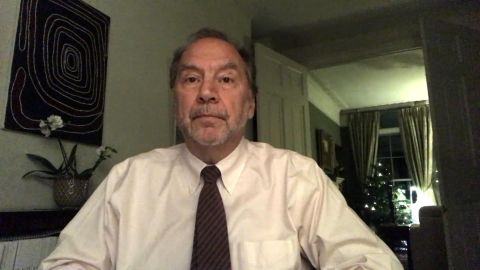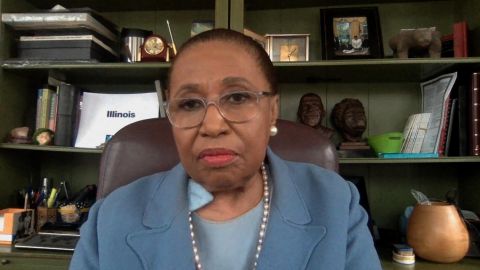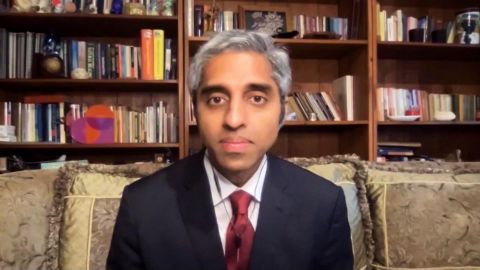Read Transcript EXPAND
CHRISTIANE AMANPOUR: So, tell me about what is making this new surge, because we have been talking and hearing about new mutations here, one coming from South Africa. What is it? How dangerous is it?
DR. PETER PIOT, DIRECTOR, LONDON SCHOOL OF HYGIENE & TROPICAL MEDICINE: Well, it’s a combination of factors. First of all, we’re in the winter. People spend more time in closed environments. So, that’s great for the virus to transmit. We had holidays. We had Christmas. And that’s going to — we will see the impact of that probably in a couple of weeks. And then there’s a new variant, a so-called mutant. And viruses mutate all the time. That’s what they do. And it seems that a new mutant that was discovered here in the U.K. already in September is already about 70 percent more infectious, goes — much faster transmit than what we have had up to now. And in South Africa, there’s another mutant which seems to be even more different, and that is also really spreading faster. And one of the reasons that they are spreading faster is that they produce more virus in the body, so we excrete more viruses and we exhale more viruses. And so all that combined, plus the fact, to be honest, the fact that people are not always respecting the rules — if we all would respect social distancing, wearing masks, hygiene, go for testing, stay home when we have symptoms, we wouldn’t be where we are today. So, that’s why a vaccine is so, so important to get out of this crisis, because it is a crisis.
AMANPOUR: So, let me ask you then about the vaccine. You talked about — I mean, look, you’re very optimistic about it, and so are many people. But already we’re hearing that there may be logistical issues with trying to get it out. We were promised a million or two million per week. Some are suggesting it should be five million vaccinations per week. That’s nowhere year happening. As we mentioned, since the Pfizer one was authorized here last month, there’s only been a million people vaccinated. So, what has to happen? What is it that’s holding up the logistics right now?
PIOT: Well, I think, first of all, we’re at the beginning. So, setting that all up has taken time. I think we need to go for a very, at the same time, decentralized approach, so every G.P. at practice — and that is starting to happen — has to be involved. We have got volunteers, but they have to be trained. The logistics, I think, are working in terms of sending the vaccines, even the Pfizer vaccine, which requires, as we all know, minus-70 Centigrade. But the AstraZeneca/Oxford vaccine can be transported at the fridge temperature. So, I think it’s going to get better. But we need to — this needs to be a real national effort, a national effort that — helping the epidemic.
About This Episode EXPAND
Virologist Peter Piot explains why new COVID-19 variants are causing concern amongst scientists. Former Defense Secretary William Cohen reacts to President Trump’s phone call with Georgia’s secretary of state. Former Sen. Carol Moseley Braun discusses tomorrow’s senate runoff election in Georgia. Dr. Vivek Murthy explains what’s gone wrong with vaccine distribution.
LEARN MORE



